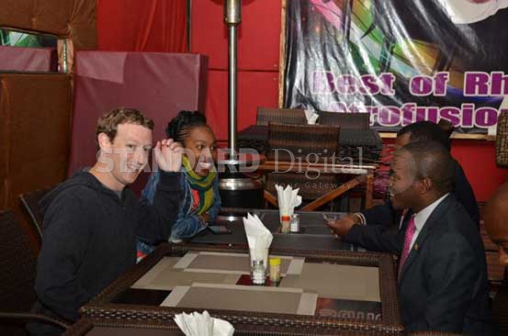
Facebook CEO Mark Zuckerberg arrived in Nairobi on Thursday in a visit that caught many in Nairobi's tech and business communities by surprise.
On Tuesday, Facebook's communications team in South Africa sent emails informing journalists that Ime Archibong, Facebook's director of global product partnerships, would be in town for a brief visit. However, up until early evening on Wednesday, the details of the visit were scanty and images of Mark Zuckerberg in Lagos on his first ever African tour prompted mild self-deprecation comments among Kenya's Twitter community.